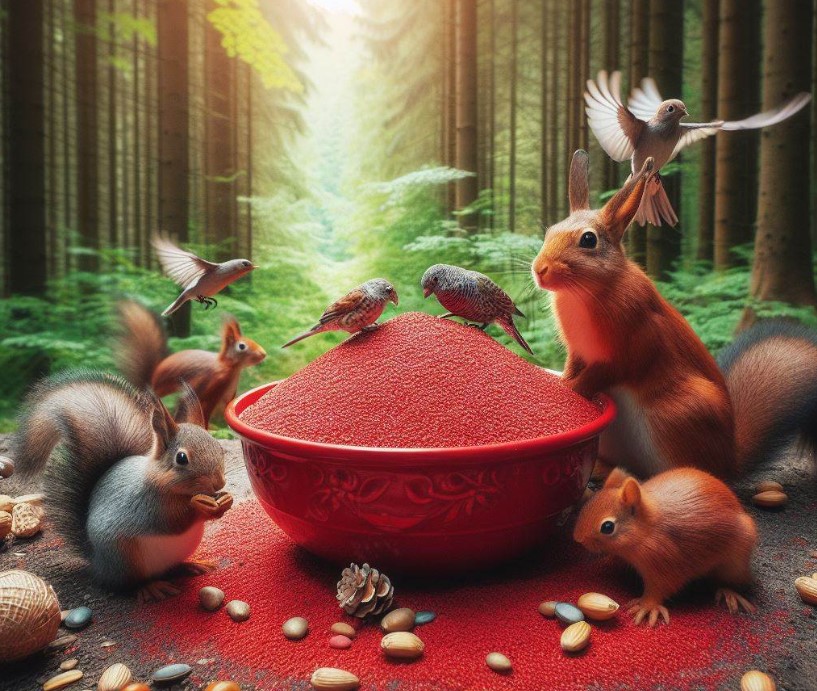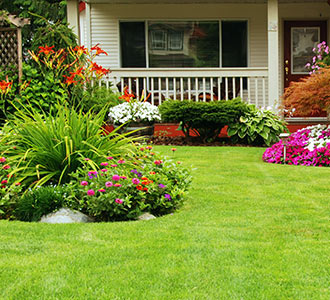Blood meal is an organic fertilizer made from dried, ground animal blood usually from cattle. It’s high in nitrogen making it a useful addition to garden soil in the spring to boost plant growth. But some gardeners have concerns about whether the strong smell of blood meal might attract unwanted critters and pets to the garden. Let’s take a look at the pros and cons of using this controversial fertilizer.
The Benefits of Blood Meal
There are several potential benefits to using blood meal in your vegetable garden flower beds and with trees and shrubs
-
It provides a good source of nitrogen, which promotes lush foliage growth. Plants with yellowing leaves showing signs of nitrogen deficiency often respond well to an application of blood meal.
-
It’s an organic fertilizer so you avoid using synthetic chemical fertilizers.
-
Blood meal fertilizer releases nitrogen slowly over 1-4 months. It’s not a quick burst like some synthetic fertilizers.
-
It can help acidify soil, which some plants, like blueberries and azaleas, prefer.
-
It comes in small bags, so you can try it without investing in large quantities.
Does Blood Meal Attract Animals?
The number one concern with using blood meal is that the strong smell may attract dogs, cats, raccoons, skunks, and other critters to your garden. They associate the blood scent with food. Unfortunately, there are several accounts of pets and wild animals digging up gardens treated with blood meal in search of the source of the aroma.
While deer and rodents like rabbits and squirrels may be repelled by the blood scent, it seems dogs and carnivorous wildlife are attracted to it. If neighborhood dogs, cats, or raccoons are a problem in your area, best to avoid blood meal, since it will likely lure them to your planting beds.
Cost of Blood Meal
While a pound or two of blood meal to fertilize a vegetable garden is affordable, buying enough to cover extensive gardens can get pricey. A 25-pound bag can cost $30 or more. Purchasing blood meal in bulk is more economical for large growers. If you just need it for a few tomato plants or fruit trees, a small bag is sufficient.
Alternatives to Blood Meal
If the cost or potential to attract animals has you questioning whether to use blood meal, consider these alternative organic fertilizers instead:
-
Compost and composted manure – Excellent sources of nitrogen and other nutrients.
-
Cover crops – Legumes like clover and peas add nitrogen to soil.
-
Fish emulsion – Made from fish waste, provides nitrogen, phosphorus, and potassium.
-
Cottonseed meal – Provides slow-release nitrogen.
-
Soybean meal – High nitrogen fertilizer made from soybean processing.
Using Blood Meal Safely
If you decide to use blood meal, there are some tips for keeping pets and wildlife away from your garden:
-
Apply blood meal right before planting, then water it into the soil to reduce odor.
-
Scatter blood meal inside the garden, away from the edges accessible to animals.
-
Use blood meal for potted plants raised up on decks and patios instead of in garden beds.
-
Mix a bit of blood meal into potting soil for container plants.
-
Choose resistant raised beds with hardware cloth or wire fencing underneath to thwart digging.
While blood meal is an effective organic fertilizer, take care using it, especially if neighborhood dogs and urban wildlife visit your yard. With some precautions, you can safely reap the benefits of blood meal without attracting unwanted digging in the garden.
We Provide Free Estimates 647-500-5263
If You Have A Specific Animal Problem
- RaccoonsDon’t like prickly plants as they have sensitive feet. They won’t eat cucumbers, squash, or other plants with sharp leaves. Don’t like spicy things. Plant garlic, hot peppers, and any other nightshade veggie. Don’t like the smell of peppermint. Motion-activated lights can keep raccoons away. Do not leave your pet’s food out for them to find. Do not like the smell of ammonia. Put tennis balls or old clothes that have been soaked in bleach all over the yard. Do not like the smell of peppermint. See rats and mice.
- SquirrelsRemove what attracts them, such as fallen fruits and seeds. Plant daffodils, ornamental onions, snowdrops, and muscari around tulips and other bulbs to keep squirrels away. Bugs don’t like these plants. Daffodils and Narcissus are toxic to them. Dislike the smell of nasturtiums and marigolds. Planting them in your garden will deter them. Hen manure is a smell squirrels do not like. It can be purchased in a pellet form. The scent is undetectable to humans.
- Make cylinders out of ¼” to ½” chicken wire to keep rabbits away from new trees or shrubs. Bury the collar. The cylinder should be two to four inches bigger around than the plant’s diameter. Remove any evidence of nesting and block the area.
- CatsTend to dislike the smell of citrus. Place plants that smell like lemons, like citronella or lemon balm, in your garden. You can also cut up lemon, orange, and grapefruit peel and scatter it around. It’s also helpful to mix coffee grounds with the citrus. As they break down, they become natural fertilizers. Dislike marigolds.
- DogsFence the area off. Spread around the garden an equal amount of dried mustard powder and crushed dried pepper. Reapply after rain.
- Rats and MicePrevention is the best control method. Keep your garden, shed and home clean. Put seeds in a plastic or metal container if you want to store them in a shed or garage. Put all garbage in a closed bin. If you look closely, you can see that there are rodents in your garden because plants disappear overnight and don’t show any signs of being there. Other signs include tunnels in the ground or piles of stuff that looks like black rice grains. An eco-friendly deterrent is peppermint essential oil. Peppermint has a strong aroma which is unpleasant to rodents. Spray it around the edges of nests and burrows and in corners where it has been mixed with water. Put a few drops on a cotton ball and rub it on the areas that hurt. Citronella and eucalyptus oil can also be used. Replace the cotton and respray approximately every two weeks. If you want to keep rodents out of your shed, garage, or home, fix any cracks or holes they can get through. Remove their shelter. Rats and mice like to live in brush and piles of wood. Elevate wood piles or periodically move or rearrange them. There are many kinds of traps on the market, such as snap traps and live traps. Don’t let other animals get hurt by the trap in the yard. Place it under a milk crate or inside a box. Poison is another alternative. People and animals should be very careful with these poisons because they are very dangerous. If live traps are used, remember trapped animals are dangerous. When getting rid of dead rodents, you should always be careful with traps and wear thick, protective gloves. After working with traps or dead rodents, wash your hands with soap and water.
How To Use BLOODMEAL To Get Rid of Pests – DEER, RABBITS, SQUIRRELS, CATS, RACCOONS, CHIPMUNKS, etc.
FAQ
Does blood meal attract rodents?
Are raccoons attracted to blood meals?
What animals eat blood meals?
What animals does blood attract?
What animals eat blood meal?
Blood meal is also used as a deterrent for some animals, such as moles, squirrels and deer. It is thought the smell of blood meal is not appealing to these animals. Is Blood Meal a Good Fertilizer? Many organic gardeners like to use blood meal as a fertilizer.
Should Anemic people eat more red meat?
Anemia is a condition which might lead to serious health problems. Any underlying conditions like bleeding disorders should be evaluated if a person has anemia. Not eating enough iron rich foods may be the other cause of anemia. This can be improved by consuming iron rich foods like green leafy vegetables, spinach an also red meat.
Does blood meal attract deer?
Blood meal can be used to deter pests but can also attract them too! Animals such as deer or rabbits that can quickly destroy a garden hate the smell of blood meal so is a fantastic deterrent for our leaf eating friends.
Does blood meal make a difference?
Gardeners notice a visible difference in the greenery of their plants after blood meal enrichment. High in nutrients, blood meal fertilizer helps produce incredibly lush, plentiful, and deep-green foliage. Blood meal is ideal for adding a long-lasting depth of color to your green space.
- A Complete Guide to Caring for Yuki Cherry Blossom Shrub - January 23, 2025
- Identifying Red Hot Poker Seeds: What to Look For When Harvesting Torch Lily Pods - January 23, 2025
- A Complete Guide to Harvesting Evening Primrose Seeds - January 23, 2025



